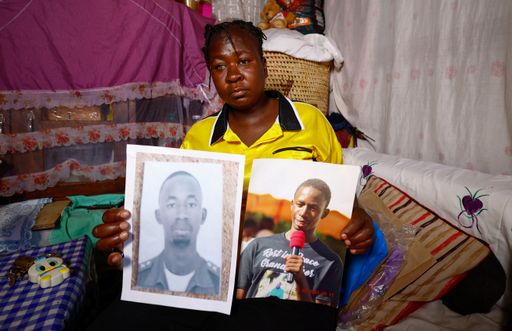Sport
African countries could achieve universal access to clean cooking in 15 years, potentially preventing millions of deaths and creating nearly half a million jobs, a recent report says.
For over a billion people across the African continent, preparing a meal means crouching over open fires or smoky stoves, inhaling toxic fumes that take a toll on their health over time.
The kitchen, usually the heart of a home, becomes a health hazard. It's a silent threat that largely goes unnoticed until the worst-case scenario strikes.
The statistics bear this out. Four in five families across the continent still cook with polluting fuels like wood, charcoal or dung, says a report published by the International Energy Agency (IEA) in mid-July.
The study, Universal Access to Clean Cooking in Africa, mentions that these cooking practices contribute to over 800,000 premature deaths each year that are attributed to household air pollution. Women and children constitute the majority of victims.
Beyond the health crisis, the burden is equal parts environmental and economic, and it has defied easy solutions.
But the IEA report suggests this doesn't have to be Africa's reality forever.
It argues that African countries can close one of the continent's most harmful energy and development gaps in just 15 years – if they replicate the progress in other developing economies that faced the same problem.
"If we manage to transition to clean cooking solutions, of course, the benefits will be less emissions, which is key to many countries in Africa, and saving the continent's biodiversity by reducing tree felling for firewood," Syrine El Abed, IEA's East and Central Africa programme manager, tells TRT Afrika.
Mapping the challenge
The report features the first comprehensive mapping of clean-cooking infrastructure across sub-Saharan Africa, combined with an assessment of the cost and accessibility of each solution down to the square kilometre.
It tracks the outcomes of the Summit on Clean Cooking in Africa, held in May 2024 in Paris by the IEA and its partners. The conclave mobilised over US $2.2 billion in public and private sector commitments.
According to the report, more than $470 million within those commitments has already been disbursed.
"Our declarations have enabled a unified approach and perspective to a particular problem. We are also aiming to make sure that the people who will be heavily impacted by this transition to clean cooking do not have to bear undue costs," the African Union commissioner for infrastructure and energy, Lerato Mataboge, tells TRT Afrika.
The African Union held a summit in Dar es Salaam, Tanzania, in 2024, where African heads of state and governments made a strong pledge to ensure clean energy transition in Africa aimed at providing clean energy to 300 million people on the continent by 2020 under what is known as Dar es Salaam Energy Declaration
During the Africa Energy Summit, held with the support of the African Development Bank, leaders committed to energy transformation with more than $50billion backing from global partners.
Environmental stakes
"The environmental stakes are high," the IEA report warns, noting that cutting trees for firewood and charcoal is accelerating deforestation and threatening biodiversity across the continent.
The good news is that change is on the horizon.
"Some countries have taken steps in the right direction by putting in place policies that ban cutting trees for firewood…. Of course, there is still work to be done in terms of implementation and making sure that these policies extend to other countries," says El Abed.
The IEA's roadmap shows the far-reaching benefits of achieving universal access to clean cooking. Over 4.7 million premature deaths could be avoided cumulatively between now and 2040 in Africa.
The plan envisions 80 million people gaining clean cooking solutions each year across the continent, marking a seven-fold acceleration from the current pace.
For women and girls, the benefits extend beyond health. They could potentially salvage roughly two hours a day, freeing time for education and work. The amount of time gained would match the total annual working time of the entire labour force of Brazil today.
The economic impact would be substantial too: 460,000 new permanent jobs can be created in the clean-cooking value chain, primarily in fuel distribution, retail services and equipment maintenance. That's comparable to the number of electric utility workers in Africa, according to the IEA.
Investment planning
This transformation comes with a price tag of $37 billion in cumulative investment till 2040, equivalent to around $2 billion annually, or less than 0.1% of what the world invests annually in energy.
"This includes upfront spending on household equipment such as stoves, fuel cylinders, and canisters, as well as enabling infrastructure like fuel distribution networks, storage terminals and electricity grid upgrades," states the IEA report.
The key, according to Mataboge, is coordination. "We need to find that alignment and agreement among ourselves that then helps us to have individual country strategies to respond to the challenge, because different countries will have different solutions," she tells TRT Afrika.
Comments
No comments Yet




















Comment